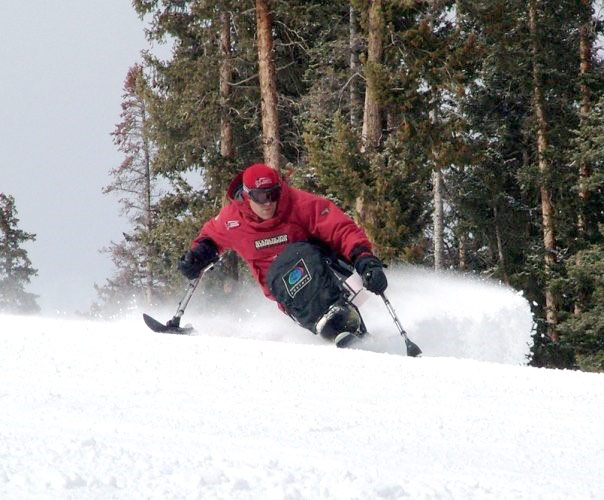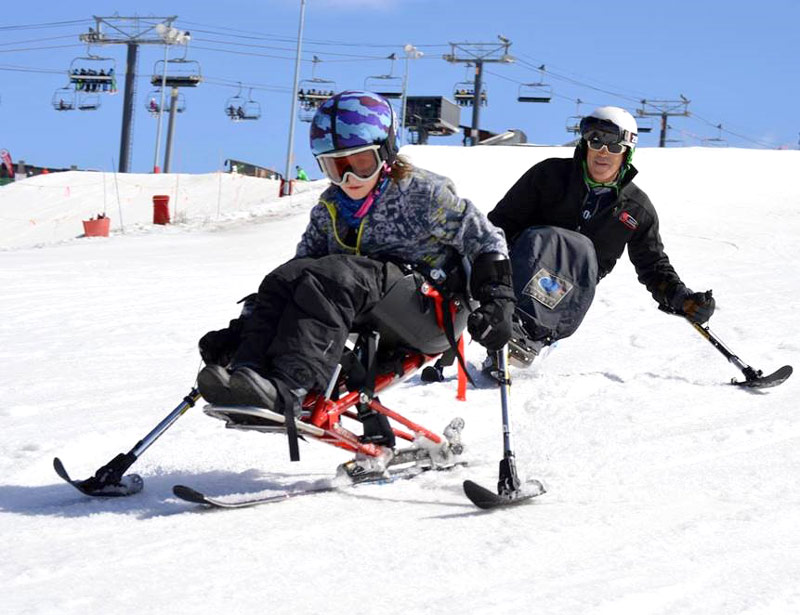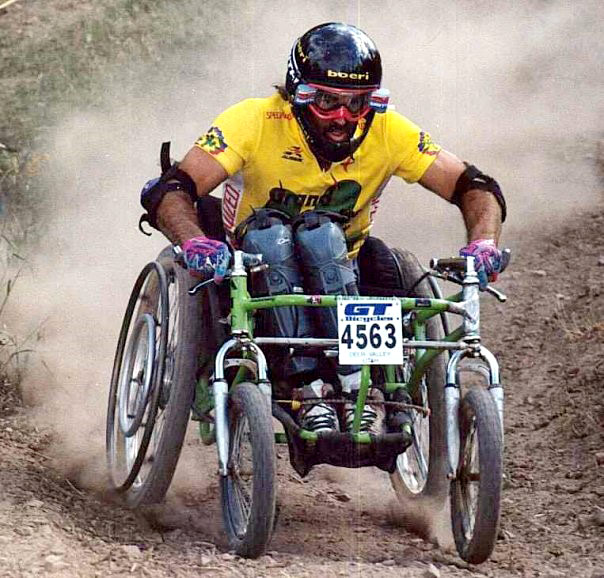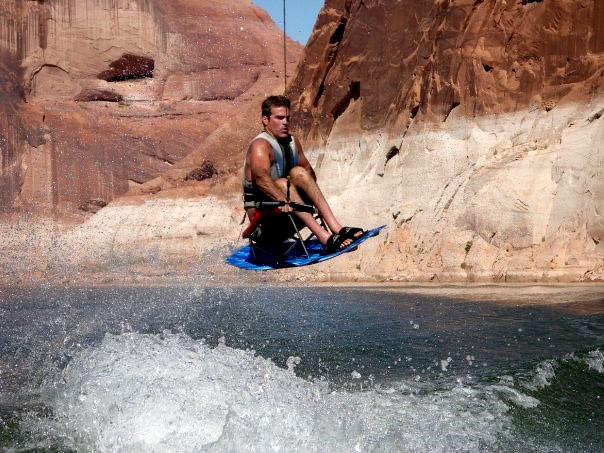The ancient Chinese sage Confucius is often credited with the saying "choose a job you love and you will never have to work a day in your life." While this is a nice sentiment and maybe true to some degree, it's often difficult to know if you will like a career until you start down that path.
An Athlete from a Young Age
I grew up playing sports. All kinds of sports. In my youth, I always wondered if I could just play sports for a living when I grew up. I even made a bet with my sister when I was 10 years old that I would play in the NFL one day. That's the beauty of youth; you can dream of being anything: doctor, lawyer, or professional athlete.
While I did later attend college on an athletic scholarship, I had to come to the realization that even though playing sports was my passion, I had to eventually choose an academic path that would suit me well in my eventual career choice. At least, that was the plan.
Keeping Busy in College
Instead, I chose a college not based on academic interest, but lifestyle. After all, I didn't even know what I really wanted to study, let alone what I wanted to do for a living. I enrolled in Fort Lewis College, a small liberal arts school in Durango, Colorado. Purgatory ski area was 25 miles away and there was a golf course on campus. On my first visit to check out the campus, I overheard a student say "Here you can ski and get a degree in your spare time." It was music to my ears.
I absolutely loved my college experience. I set up my classes so I could ski four days a week and I even took some summer courses, played golf, and learned to mountain bike. Sports still played an important role in my life. But all good things must come to an end, and after graduating with a degree in business administration I moved back to Denver to find a job.
Over the next few years and several different jobs, including working as an insurance agent for a large company, I understood more about what I didn't want to do than what I did want for a career. But I was finding my way. In the summer of 1988, I went on a trip with some friends. Little did I know that this trip would drastically change the course of my career path...and my life.
Paralyzed at 25
While at Lake Powell in southern Utah, I dove off a cliff into the water and broke the 9th thoracic vertebra in my back, instantly paralyzing me from the mid-abdomen down. At 25 years old I was told I would never walk again. My first thoughts were not about my future ability to have a career or a family, but about what sports, if any, I would be able to do. Participation in all sports takes some degree of physicality and I had just lost quite a bit of mine.
While I was in rehab trying to get my head around what happened to me and what my life might be like moving forward, I immersed myself in books and articles about life with a spinal cord injury. At that time, adaptive sports were still in their infancy and although there were ways to participate in many sports, they certainly did not look very engaging to me so I decided to focus on getting a job and getting on with my life.
After countless interviews, I ended up getting a job valuating securities at a trust company in downtown Denver. While I enjoyed this new endeavor and liked the people I worked with, I felt there was something missing. One day I received a call from a friend of a friend who was volunteering at the National Sports Center for the Disabled (NSCD) in Winter Park. He knew I was a skier and asked if I would be interested in relearning how to ski. Since it was only eight months after my injury and I had metal rods in my back, I had been advised to wait a year before engaging in any activities that might jeopardize the stability in my back, so we made plans to ski the following season. I remember not being able to sleep that night as the idea of skiing again consumed my every thought. I called him back the next day and, throwing caution to the wind, decided that there was no time like the present. I set a date to ski the following week.
Getting Back on the Slopes
Learning how to ski in a mono-ski can be very challenging, especially if you don't have a lot of your core muscles. A mono-ski is basically a single ski mounted to a metal frame with a seat and a shock absorber. Outriggers, which are like ski poles with ski tips attached at the bottom, make contact with the snow and assist in turning the ski, pushing on the flats, and loading the chairlift. It takes quite a bit of strength and balance to mono-ski and at that time, it seemed like I had neither. There were times when I thought about giving up but I knew the rewards of being an independent skier again would be worth the struggle. More than that, if I quit at that point, what would they say about me? What would I do the next time I was faced with a challenge? I persisted, and one turn at a time, I became a skier again.

I continued to ski on the weekends through the next season but eventually that was not enough. One fall day, while sitting in my office, I looked around and thought "Is this it? Is this the rest of my life?" Right at that moment, I felt a need to be somewhere else; somewhere without four walls, a computer, and a desk. The next day I met with my boss and put in my two weeks' notice and planned my move to the mountains.
My original plan was to try my hand at ski racing and Winter Park had a program where you could train five days a week. I had some money saved up and my first sponsor was surprisingly the company I had just left. They were very supportive. While I had some success for a few years, I ultimately didn't enjoy ski racing as much as I enjoyed just free skiing. Ski racing to me was confining and I often found myself powder skiing or skiing in the trees instead of training in the race course. Soon I learned how to ski moguls and fell back in love with skiing.
There were times when I would ski with my able-bodied friends and they would push me to ski terrain above my ability. I struggled while they waited for me. Sometime later, on that same terrain, something clicked. I made it down to the bottom of the run and looked around. I was alone. I looked up and saw my friends about halfway down that run. That was a very powerful moment for me. When I was learning how to ski, I wasn't sure I would ever be close to being the skier I once was. Now it was happening. I also felt I had to share this feeling of freedom and independence with others.

The next season a ski instructor/coordinator position was available at the NSCD so I applied, interviewed, and got the job. The job entailed basically running the "sit ski" program and coordinating 300 volunteer instructors. I embraced this new direction in my life and while the job didn't pay very well, it was very rewarding in other ways. Since this was a seasonal job, it also afforded me the opportunity to pursue other interests in the off-season. I started off-road wheelchair racing (think four-wheeled mountain bike), water skiing, scuba diving, and hand cycling. I started to realize that the more active I was, the healthier and happier I became.

While this was a very content time in my life, there was still one problem. I was still a seasonal employee...a ski instructor. There was really no way to be employed year-round with this organization. I had to figure out how to create an opportunity to get other people involved in year-round outdoor sports so they could realize the benefits of a healthy lifestyle that had helped me feel whole again. This situation, along with inquiries about adaptive sports opportunities from people with disabilities around the world, made me believe that there was a need in the community for a new progressive sports organization.
Creating Opportunities
I asked myself, instead of looking for a job or a career, why not create one? So I got together with a friend of mine and created Adaptive Adventures, a non-profit dedicated to expanding adaptive sports across the country. The initial philosophy was to not only provide information about different adaptive sports opportunities but to also bring people from around the country to different mountain venues and create an environment of learning, sharing, and socializing. We also created other events in the summer including water ski camps, Lake Powell houseboat trips, and multi-day bike tours. We even started a youth program and a program for recently injured veterans.
Entering its 18th year of operation, Adaptive Adventures now serves thousands of people with physical disabilities each year in over 30 states with programs in kayaking, cycling, sailing, scuba diving, climbing, water skiing, and of course snow skiing.

Through Adaptive Adventures I have witnessed the life-changing impact that participation in outdoor sports can have for people who thought sports were not an option or even possible for them.
Although it took a while to realize I could turn my passion for sports into a career that is incredibly rewarding, I would not change a thing about this journey. I've had so many great experiences and met some very inspiring people along the way and I get so see the many smiles on people's faces as they overcome challenges in their lives. While there may be a time in the future to change direction and start a new chapter in my career, I can't imagine doing anything else. I didn't just find a career that I love, I created one. And what's more satisfying than that?
I think I'll send a check to my sister now and settle that bet.
About the Author
Matt Feeney, a Colorado native, has always been an athlete; he was a high school All-American. In 1988 he suffered a spinal cord injury and became paralyzed. He has since become a PSIA-certified ski instructor, a USA-certified water-ski instructor, a two-time off-road downhill champion, and an accomplished hand cyclist. In 2005 Matt was named the Colorado Adaptive Athlete of the Year. In 1999 Matt co-founded Adaptive Adventures. Above all else, Matt is a survivor.
Matt's ride is a Quickie 7R.
Most of the stories here on Live Quickie were submitted by readers. Do you have a story to tell? We'd love to hear it. Submit your story here.